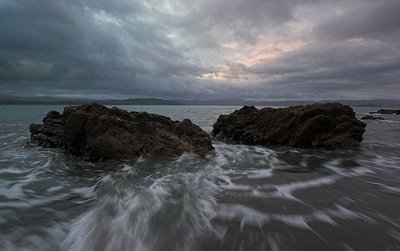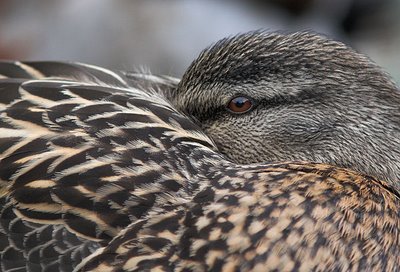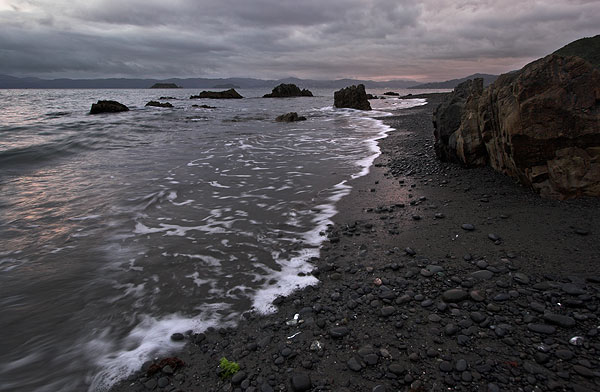“Tell me what is a thought, and of what substance is it made?
Tell me what is a joy, and in what gardens do joys grow?”
The man in the bookshop at Shannon leans back in his chair, eyes closed, feet propped on the desk, hands clasped, an open book face down on his lap. Limp kiwifruit skins litter a plate on the desk. The smell of old books.

He wakes as I slide the door open.
“I was just having a little doze,” he says, smiling.
I ask whether he has a copy of Thus Spake Zarathustra and his face lights up.
“Oh yes,” he says, “I usually have a couple of copies.”
He walks to the back of the front room, crouches and begins to look through a row of aged books. He frowns, seemingly perplexed that he can’t find a copy, but then extracts a volume from the row.
“Ah, this is the only copy I have at the moment.”
We talk a bit about Nietzsche, and it quickly becomes apparent that he shares my low regard for the great philosopher. I suspect we could natter all afternoon but I’m keen to keep moving. I buy the book, half wondering whether it’s a waste of money but I'm nagged by a feeling of obligation to read something of Nietzsche’s original work rather than slandering him solely on the basis of secondary literature.
...
At Williams Park the little shags now have chicks—strange, reptilian little animals. The light there is too harsh, too contrasty, so I carry on to Burdan’s Gate. But there, also, the hard, flat light and incessant wind stymie my intention to photograph. I retreat to the car and sit for a while, thinking of things I've seen earlier in the afternoon as I drove South. Somewhere near Tokomaru I saw cattle in a roadside field. One beast reclined on the ground, feet tucked under—but it was the curve of its neck I noticed. It had its head turned back so it lay against its shoulder, facing back. Something about the curve of the neck, the long swell of muscle under the skin. The poise of the head.
Soon after, I'd passed an old, gnarled 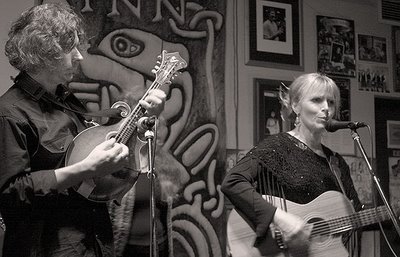 macrocarpa, hardly even tree-like in its form, distorted by accidents and weather and perhaps a history of ill considered pruning. One of the big main branches curved in the exact form of the steer's neck; the swell of muscle appeared in the form of the wood beneath the bark. Even the same colour—the weathered silvery-grey of a charolais cross echoed by the bark of a Monterey cypress.
macrocarpa, hardly even tree-like in its form, distorted by accidents and weather and perhaps a history of ill considered pruning. One of the big main branches curved in the exact form of the steer's neck; the swell of muscle appeared in the form of the wood beneath the bark. Even the same colour—the weathered silvery-grey of a charolais cross echoed by the bark of a Monterey cypress.
But no one calls them that here. They’re always macrocarpas. I wonder who first called them that consistently, and why, and when. Cupressus macrocarpa. When I was a child, discovering the world at McCormack’s Bay, macrocarpas were old trees where herons roosted and possums called at night and the darkness under low branches fostered too much imagination.
...
Why is Nietzsche held in such regard? Some call him a genius; he’s widely quoted, usually with awe; the literati relish dropping his name into a conversation, and he’s often referred to as one of the great philosophers of more recent times. Yet, his philosophy—if it can be called that—seems more assertion than reason; more diatribe than argument. I suspect much of the idolising arises from his skill with rhetoric—his ability to form such powerful aphorisms that to deny them is to appear weak and simple-minded. Take, for example, his statement that:
“Most thinkers write badly because they communicate not only their thoughts but also the thinking of them.”
It's clever and powerful. However, like so many of Nietzsche’s claims, it's largely bullshit. And, since he deemed it unnecessary—in fact, undesirable—to justify his aphorisms, I won’t attempt to justify my claim that this example is bullshit; instead,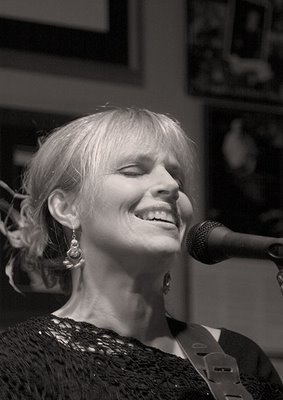 I’ll simply point out that in my experience, poor communication of thoughts more often results from the failure to communicate the thinking of them.
I’ll simply point out that in my experience, poor communication of thoughts more often results from the failure to communicate the thinking of them.
Admittedly, and certainly, some of what he had to say has merit. I think here of one of his more famous aphorisms:
“A very popular error: having the courage of one's convictions; rather it is a matter of having the courage for an attack on one's convictions!!!”[2]
True. His idea of eternal recurrence—live your life as if you're destined to relive that exact life over and over, for ever—can hardly be surpassed as a guiding principle. I'm also very much in agreement with his exhortations to embrace life intensely, to welcome the slings and arrows of outrageous fortune because they offer the opportunity for growth. While I don’t share the intensity of his disgust at the attitude that would shrink from adversity and take refuge in servility, I do prefer courage as a response. But there's a world of difference between turning adversity to your advantage and actively seeking it at the expense of joy. Moreover, courage takes many forms: many more than Nietzsche’s narrow view, which seems heavily weighted towards violence, oppression, deceit, and exploitation. For example, true compassion can require great courage—it's one of the ways it differs from pity or sympathy—yet Nietzsche considered compassion a weakness. The idea that one human being might desire that another will find joy seems not only incomprehensible to him, but repugnant.
...
My friends visit for lunch, bringing their month old baby and pumpkin pie, and the kind of conversation and understanding that delights me. After the pie we sit on the verandah and talk. Emma, soon to turn three, comes over and leans against me, using me as a buffer between the others and herself, her shyness struggling with her curiosity.
My friends leave. Next door, Olive and Trev’s visitors drive off and the grandkids' parents prepare to leave. Carly and Emma run over and sit, one on each side of me on the verandah steps, talking simultaneously, making the most of their last opportunity for the weekend. I can't get a word in edgeways.
Being trusted by children. There’s as much delight and joy in that as in anything I know.
...
It’s tempting to characterise Nietzsche as being at the far end of an attitudinal spectrum with the Dalai Lama at the other; however, although I suspect Nietzsche would have appreciated this and probably considered it a spectrum of greatness, the Dalai Lama would probably dismiss the idea as a dualistic illusion. Moreover, I’m sure he would feel genuine compassion for Nietzsche. This, of course, would have driven Nietzsche insane if he hadn’t already been so for the last 11 years of his life.
I'm left struggling to understand why a person who considered women should be “playthings of the warrior”, most of the human race as “bungled and botched” and their wellbeing meaningless, and who compared them (us?) to apes [3], should be revered as an intellectual genius. Moreover, the pervasive dualism in his attitudes—exemplified by his contrast of Apollonian with Dionysian attitudes towards life—seems, to me, shallow; the opportunities for exploring how to combine those approaches to live a better life are wasted. My best guess is that he’s admired for two main reasons: his rhetorical brilliance, and his sheer audacity—his willingness to declaim against conventional, and mostly reasonable, beliefs. In my opinion, only the first deserves respect, and neither makes him a great philosopher.
...
Grey, drizzly rain; the mountains behind Levin receding in successively lighter silhouettes. Finally, nothing. Perhaps these were the mountains Zarathustra came down from; mountains that give birth to legends. Mountains of myth, mountains in the mind. I wonder what our society today would be like if we all followed Nietzsche’s principles? In effect, I suppose I’m loosely applying Kant’s categorical imperative [4] as a test of Nietzsche’s philosophy—but Nietzsche considered Kant’s views absurd and dismissed him as unimportant. Typical, and it does nothing to show Kant was misguided. To the contrary, the little I know of the categorical imperative suggests it’s a useful tool for assessing the value and consistency of a philosophy, and, unfortunately for Nietzsche, it suggests the outcome of applying his teachings would be highly depressing. For example, if we all acted as if compassion were a weakness and the suffering of most of the world’s population as justifiable if it produces even a single great man, then what kind of world would we live in? Not one in which I’d like to live.
down from; mountains that give birth to legends. Mountains of myth, mountains in the mind. I wonder what our society today would be like if we all followed Nietzsche’s principles? In effect, I suppose I’m loosely applying Kant’s categorical imperative [4] as a test of Nietzsche’s philosophy—but Nietzsche considered Kant’s views absurd and dismissed him as unimportant. Typical, and it does nothing to show Kant was misguided. To the contrary, the little I know of the categorical imperative suggests it’s a useful tool for assessing the value and consistency of a philosophy, and, unfortunately for Nietzsche, it suggests the outcome of applying his teachings would be highly depressing. For example, if we all acted as if compassion were a weakness and the suffering of most of the world’s population as justifiable if it produces even a single great man, then what kind of world would we live in? Not one in which I’d like to live.
...
Wellington's about to be blown out to sea. Spray from the harbour gusts like squalls of rain across the waterfront; several times I'm almost lifted off my feet. But in the shelter of the canyons of the main business area the wind can't maintain its ferocity and resorts to being merely annoying. I make my way back to the car in the late afternoon, luckily avoiding the heaviest of the real rain which began an hour or so ago. A woman in her late 60s, perhaps her early 70s crosses the street with me, and after a particularly vicious wind gust, we strike up a conversation—the familiarity of shared adversity. She wonders whether she’s met me before; my face looks familiar, she says. I explain I'm not local; mention the Pohangina Valley; shake my head when she asks if I’ve been to Teachers’ College. She smiles and says I look like a tramper. You got that right, I say. She doesn’t elaborate, so I don’t know what gives her that impression but suspect it's the gradually moulting down jacket, the day pack, and the weatherbeaten disarray.
There's a fierce joy in foul weather. I think that kind of feeling may have been part of what gnawed at Nietzsche.
...
Back in the valley; a warm afternoon; the last clouds disappearing. A strange evening. I drove into town not long before dusk, and everything had an odd, hazy look—like an imminent fog. Down South, a bank of cloud hung over the Tararua Range, the world vanishing into the blank haze. Almost apocalyptic but without the trumpets and horsemen.  For all my criticism of him, I think Nietzsche would have understood this feeling. Whether he'd have longed for the trumpets and horsemen is another matter—contentment seemed not to figure in his thinking. Perhaps he considered that a vice, too? Perhaps he thought dissatisfaction's necessary for growth, or, rather, that satisfaction hinders it? Maybe I'm misrepresenting him, but if I'm not, I'm pretty sure he's wrong. And if he's right, well, it's hard to see the point of a life. That, I think is the root of much of my dissatisfaction with his perspective; it's the feeling that it leads nowhere I'd like to be; a life lived as he advised would be an unpleasant and dissatisfied life.
For all my criticism of him, I think Nietzsche would have understood this feeling. Whether he'd have longed for the trumpets and horsemen is another matter—contentment seemed not to figure in his thinking. Perhaps he considered that a vice, too? Perhaps he thought dissatisfaction's necessary for growth, or, rather, that satisfaction hinders it? Maybe I'm misrepresenting him, but if I'm not, I'm pretty sure he's wrong. And if he's right, well, it's hard to see the point of a life. That, I think is the root of much of my dissatisfaction with his perspective; it's the feeling that it leads nowhere I'd like to be; a life lived as he advised would be an unpleasant and dissatisfied life.
I prefer the life I'm living.
Notes:
1. from Blake's Visions of the Daughters of Albion. Many thanks to Debbie Lee for this gift.
2. from Nietzsche's Works, 1920-1929, Volume XVI, page 318
3. I'll point out that I don't necessarily consider “apes” to be a pejorative term, although some of their habits are particularly unpleasant. But in this sense at least, Nietzsche was a man of his time. “What is the ape to man? ” he wrote, “A laughing-stock, a thing of shame. And just the same shall man be to the Superman: a laughing-stock, a thing of shame. ” from Nietzsche's Thus spake Zarathustra.
4. Loosely stated, the categorical imperative states you should act as if what you're doing should be a universal way of acting in similar circumstances. Although it resembles the Golden Rule, it is not the same. The Wikipedia article's a good starting point.
Photos (click the smaller photos to enlarge them):
1. Little shag (kawaupaka, Phalacrocorax melanoleucos) gular fluttering (it gets hot sitting on those nests. his is how they keep cool). Williams Park, Days Bay, near Eastbourne.
2 & 3. Nigel Gavin and Lorina Harding at the Celtic last Tuesday. Magnificent music. I didn't know they were playing until I arrived as they were setting up; after hearing just a few snippets and phrases of songs I abandoned my intentions of going to a movie. I had the camera with me; the lighting was appalling for photography (dim and red) and I pushed everything to the limits.
4. It's been good weather for ducks lately. A muscovy at Williams Park. I trust I won't look like this by the time the journey's over.
5. Woolshed, No. 2 Line, Pohangina Valley. Playing with the postprocessing.
6. Another in the series of the Wellington coast at dusk, Burdan's Gate, near Eastbourne.
* That's likely to be it for a while, as I fly out early tomorrow morning. I had intended to write more before I left; in particular, I wanted to do something about how I photograph, including the post-processing, but that will have to wait. However, this is only a last post in the sense that all time is contingent; I trust it won't be the last in any absolute sense. Take care, and look after each other.
Photos and words © 2006 Pete McGregor


